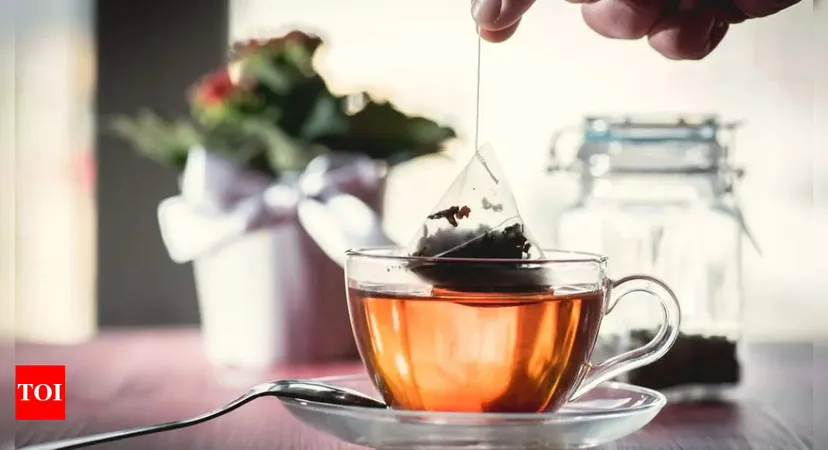
Shocking Study Reveals Your Favorite Tea Could Be a Microplastic Ticking Time Bomb!
2024-12-24
Author: Kai
Introduction
A groundbreaking study conducted by researchers at the Autonomous University of Barcelona has unveiled a startling fact that may leave tea lovers in disbelief. Polymer-based tea bags, often used for convenience, can leach billions of harmful microplastics and nanoplastics into your cup of tea, which can potentially enter your bloodstream and wreak havoc in your body.
The Hidden Dangers of Tea Bags
For many, brewing a steaming cup of tea is not just a daily ritual; it's a moment of tranquility and revitalization. However, this comforting habit might come with hidden dangers. The research, published in the journal *Chemosphere*, indicates that these tiny particles, once ingested, can travel through our systems, possibly accumulating in vital organs such as the brain, heart, and kidneys.
Study Findings
The study specifically focused on three common types of tea bags made from nylon-6, polypropylene, and cellulose. Astonishingly, it was found that when polypropylene tea bags were immersed in hot water, they could release up to 1.2 billion microplastics per milliliter! Even more concerning, cellulose bags emitted approximately 135 million particles, and nylon-6 contributed around 8.18 million particles per milliliter. This illustrates a severe contamination risk with every cup brewed.
Researcher Insights
Lead researcher Alba Garcia noted that these innovative methodologies used for identifying pollutants are crucial for understanding their potential health impacts. In their experimental setup, the researchers observed how microparticles interacted with human intestinal cells, revealing a disturbing finding: after 24 hours, a type of mucus-producing intestinal cell absorbed a significant amount of these microplastics, with some even infiltrating the nucleus, where our genetic material resides. This raises serious questions about the long-term effects of microplastics on our health.
Tips to Minimize Risk
But don't worry—there are ways to minimize your risk. Here are some essential tips for avoiding microplastic exposure from tea: 1. **Go Loose-Leaf**: Ditch the bags altogether and opt for loose-leaf tea, which eliminates the exposure to harmful plastics. 2. **Choose Wisely**: If you prefer using tea bags, select those made from natural fibers like paper or cloth, as they are less likely to release microplastics. 3. **Filter Your Water**: Utilizing filtered water can help reduce contaminants, including microplastics, ensuring a cleaner brew. 4. **Handle with Care**: Avoid squeezing or tearing tea bags, which can release more microplastics into your drink.
Conclusion
Not only does tea boast numerous health benefits—like being rich in antioxidants, promoting heart health, aiding digestion, enhancing mental clarity, and supporting weight loss—it's crucial to break free from plastic packaging in everyday life. Opt for glass or metal containers to minimize contact with plastics, especially when it comes to food and drink. As awareness around the risks of microplastics continues to grow, it is vital for consumers to stay informed and make smarter choices. With this new study in mind, perhaps it's time for tea lovers to rethink their brewing methods in order to protect their health.
Final Thoughts
Stay aware, stay healthy, and brew wisely!

 Brasil (PT)
Brasil (PT)
 Canada (EN)
Canada (EN)
 Chile (ES)
Chile (ES)
 España (ES)
España (ES)
 France (FR)
France (FR)
 Hong Kong (EN)
Hong Kong (EN)
 Italia (IT)
Italia (IT)
 日本 (JA)
日本 (JA)
 Magyarország (HU)
Magyarország (HU)
 Norge (NO)
Norge (NO)
 Polska (PL)
Polska (PL)
 Schweiz (DE)
Schweiz (DE)
 Singapore (EN)
Singapore (EN)
 Sverige (SV)
Sverige (SV)
 Suomi (FI)
Suomi (FI)
 Türkiye (TR)
Türkiye (TR)